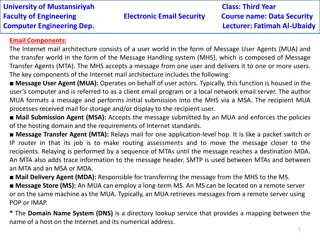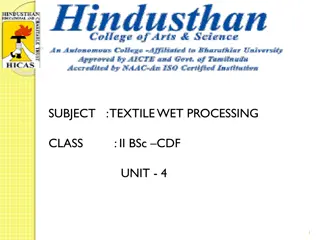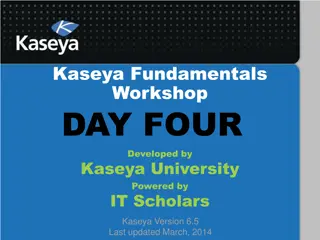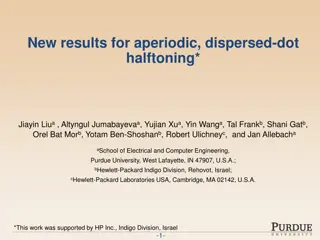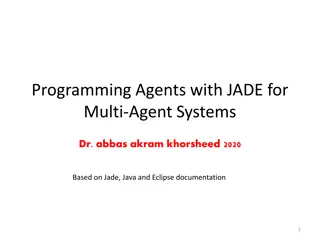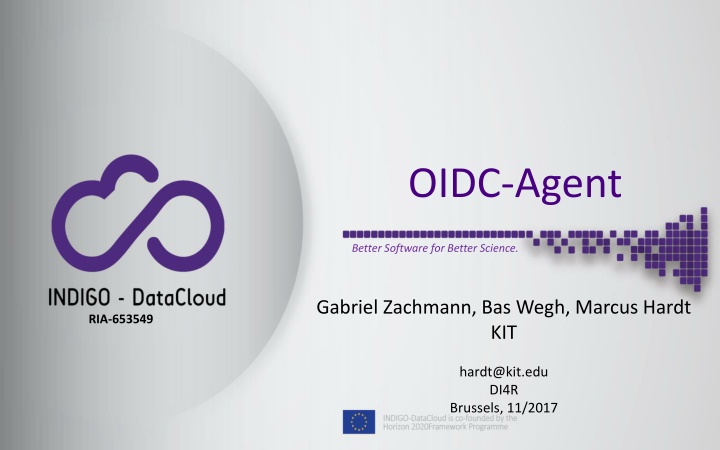
The OIDC-Agent Architecture
Explore the architecture, features, and security aspects of OIDC-Agent, a tool designed for non-web authentication in OpenID-Connect services. Learn about its components, usage, and security measures for managing OIDC tokens effectively.
Download Presentation

Please find below an Image/Link to download the presentation.
The content on the website is provided AS IS for your information and personal use only. It may not be sold, licensed, or shared on other websites without obtaining consent from the author. If you encounter any issues during the download, it is possible that the publisher has removed the file from their server.
You are allowed to download the files provided on this website for personal or commercial use, subject to the condition that they are used lawfully. All files are the property of their respective owners.
The content on the website is provided AS IS for your information and personal use only. It may not be sold, licensed, or shared on other websites without obtaining consent from the author.
E N D
Presentation Transcript
OIDC-Agent Better Software for Better Science. Gabriel Zachmann, Bas Wegh, Marcus Hardt KIT RIA-653549 hardt@kit.edu DI4R Brussels, 11/2017
OpenID-Connect OIDC refresher OIDC defines many tokens; We only use these: AccessToken: Standard Token to authenticate to OIDC services Short-lived (typically 15min) RefreshToken: Guess what? Long lived (upon revocation) May only be used to obtain new AccessToken(s) Is bound to a specific client OIDC clients have to be registered with the OIDC provider I.e. your twitter app is registered with the google OIDC-P OIDC supports several flows for authentication Oauth2 Code flow (standard web flow) Password flow (default cmdline flow 2 [talk title] INDIGO-DataCloud Final Review
OIDC-Agent: Whats in the package? Motivation: CMDline + API access require non-web authentication Guiding Pattern: ssh-agent oidc-agent Daemon that handles OIDC tokens and communitcation oidc-gen Tool to register the client with an OIDC provider Use password grant flow and autoconfiguration to dynamically register the client Store encrypted OIDC data (RefreshToken, ClientID, ClientSecret) oidc-add Tool to decrypt / load / remove account info and pass to agent oidc-token Tool to obtain AccessToken 3 [talk title] INDIGO-DataCloud Final Review
OIDC-Agent Architecture 4 [talk title] INDIGO-DataCloud Final Review
Quick usage After reboot: eval `oidc-agent` Once in a lifetime: oidc-gen <name> For now: ask OIDC-P admin to enable refresh tokens for the password flow oidc-gen f <file> <name> Use password flow to get RefreshToken Each time you need a new token: oidc-token <name> DEMO :wq 5 [talk title] INDIGO-DataCloud Final Review
Security features Privilege separation: oidc-add and oidc-gen Only access to local disk and oidc-agent (via IPC), no network required oidc-agent The only component with network access, disk access only required for ca-bundle oidc-token Only IPC communication Decrypted credentials only in RAM All disk-stored credential are crypted using libsodium Use own free() method to wipe memory when deallocating 6 [talk title] INDIGO-DataCloud Final Review
Future work Password grant type and dynamic registration are incompatible for security reasons Right now this requires the user to communicate with OIDC-P admin after registration Will be fixed by implementation of a local webserver (oauth2 code flow) Then also google will work (they don t support password flow at all) IAM about to support the device-code-flow (draft RFC) Implement privilege separation 7 [talk title] INDIGO-DataCloud Final Review
Questions? https://github.com/indigo-dc/oidc-agent https://indigo-dc.gitbooks.io/oidc-agent 8 [talk title] INDIGO-DataCloud Final Review








